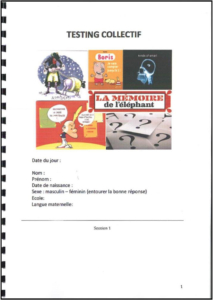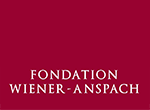
Human mathematics is the fascinating product of thousands of years of cultural evolution and it is more important than ever in today’s technologically advanced societies. Still, a considerable proportion of children have mathematical learning disabilities. Taking an Educational Neuroscience approach, this project aims at a better understanding of the relationships between language development and numerical abilities. Indeed, recent data showed that children with specific language impairment develop difficulties in arithmetic.
The project is to investigate the links between knowledge of the counting sequence, counting skills, memory for elementary arithmetic facts, and language skills in children who are not language impaired. Our hypothesis is that language delays can lead to arithmetic impairments through a causal chain of difficulties: delay in the acquisition of the counting sequence, which could affect the acquisition of counting, then impacting on the ability to store arithmetic facts and the ability to make exact calculations. We have already assessed language and numerical skills in 188 second graders. Among them, we will identify a small group of children with low language skills. Part of these low skilled children will receive a specific training aiming at enhancing arithmetic skills.
Improved knowledge about the relation between language and numerical skills will enable us to prevent and/or remediate cognitive and emotional mathematical learning problems. This will ultimately improve the level of mathematical competence in the whole of the population.
Les promoteurs
- Alain Content et Jacqueline Leybaert
- Laboratoire Cognition, Langage & Développement, ULB
- Dénes Szücs
- Numerical Cognition Laboratory, Université de Cambridge
Documents
- « The mental representations of fractions: adults’ same–different judgments », Florence Gabriel, Dénes Szücs and Alain Content, Frontiers in psychology, 1july 2013.
- « A componential view of children’s difficulties in learning fractions », Florence Gabriel, Frédéric Coché, Dénes Szücs, Vincent Carette, Bernard Rey and Alain Content, Frontiers in psychology, 10 october 2013.
- Rapport final


